The Benefits of Forklift Attachments in Australian Industries
Date Posted:10 May 2024
By enhancing versatility, improving safety measures, increasing productivity levels, and promoting cost-effectiveness and sustainability, these attachments empower businesses to navigate the challenges of the modern industrial landscape with confidence.
Australian industries thrive on efficiency, productivity, and safety. From the vast expanses of agricultural lands to bustling warehouses and construction sites, the need for reliable material handling equipment is undeniable. At the heart of many operations lies the humble forklift, a ubiquitous presence in the industrial landscape. Yet, it is the forklift attachments that often go unnoticed, silently revolutionizing the way tasks are accomplished across various sectors.
Enhanced Versatility: Meeting Diverse Demands
One of the primary reasons forklift attachments are so invaluable is their ability to enhance the versatility of these already versatile machines. Whether it's the need to handle irregularly shaped loads, delicate materials, or heavy machinery parts, there exists an attachment tailored to the task at hand. From fork extensions and clamps to rotators and side-shifters, these attachments empower forklift operators to tackle a wide array of materials with precision and ease.
Improved Safety: Mitigating Risks in the Workplace
In the fast-paced environment of Australian industries, safety is non-negotiable. Forklift attachments play a pivotal role in enhancing workplace safety by reducing the risks associated with manual handling and improper load handling. Attachments such as crane jibs enable operators to lift and maneuver loads with greater control and stability, minimizing the likelihood of accidents and injuries. Moreover, specialized attachments like fork positioners ensure precise alignment of loads, reducing the chances of product damage and workplace incidents.
Increased Productivity: Driving Efficiency Across Operations
Time is money, and nowhere is this adage more relevant than in the industrial sector. Forklift attachments contribute significantly to enhancing productivity by streamlining material handling processes. Whether it's the ability to transport multiple pallets simultaneously with a fork positioner or the efficiency gains achieved through faster loading and unloading with a sideshift attachment, these tools enable businesses to accomplish more in less time. Moreover, the versatility offered by attachments allows forklifts to seamlessly transition between different tasks, minimizing downtime and maximizing throughput.
Cost-effectiveness: Maximizing Returns on Investment
In an increasingly competitive business landscape, cost-effectiveness is key to success. Forklift attachments offer a compelling value proposition by maximizing the returns on investment in material handling equipment. Rather than investing in specialized machinery for each specific task, businesses can leverage the versatility of forklift attachments to accomplish a wide range of tasks with a single machine. This not only reduces capital expenditure but also minimizes operating costs associated with maintenance, training, and storage of multiple pieces of equipment.
Environmental Benefits: Towards Sustainable Practices
As the world embraces sustainability, Australian industries are no exception. Forklift attachments contribute to environmental conservation efforts by optimizing material handling processes and reducing resource consumption. Attachments such as bale clamps and carton clamps minimize product damage and wastage, thereby promoting resource efficiency. Additionally, innovations such as electric forklift attachments and attachment-driven efficiency improvements help reduce carbon emissions and foster a greener, more sustainable future for Australian industries.
Case Studies and Examples: Real-world Applications
To illustrate the practical impact of forklift attachments, let's consider a few real-world examples from different sectors:
Agriculture: In the agricultural sector, bale clamps enable farmers to handle hay bales and other bulky agricultural products with ease, minimizing manual labor and reducing the risk of injuries.
Warehousing: In warehouses, pallet rotators allow for quick and efficient rotation of goods, facilitating inventory management and optimizing storage space utilization.
Construction: In the construction industry, crane jibs enable forklifts to function as mobile cranes, lifting and positioning heavy construction materials with precision and safety.
Challenges and Considerations: Addressing Potential Hurdles
While forklift attachments offer numerous benefits, businesses must also consider certain challenges and considerations:
Maintenance: Regular maintenance is essential to ensure the optimal performance and longevity of forklift attachments.
Training: Proper training is necessary to familiarize operators with the use of different attachments and ensure safe and efficient operation.
Compatibility: Businesses must ensure that the forklift attachments they choose are compatible with their existing forklift models to avoid compatibility issues and operational disruptions.
In conclusion, forklift attachments are indispensable tools that drive efficiency, safety, and productivity in Australian industries. By enhancing versatility, improving safety measures, increasing productivity levels, and promoting cost-effectiveness and sustainability, these attachments empower businesses to navigate the challenges of the modern industrial landscape with confidence. As industries continue to evolve, embracing innovation and leveraging the capabilities of forklift attachments will be crucial for staying ahead of the curve and achieving long-term success in the dynamic world of Australian industries. In Australian industries, forklift attachments play a crucial role in enhancing efficiency, safety, and productivity. By providing versatility in handling various loads, improving safety measures, and increasing productivity levels, these attachments offer significant advantages to businesses across different sectors. Additionally, their cost-effectiveness and environmental benefits further underscore their importance in today's competitive market. As Australian industries continue to evolve, leveraging the capabilities of forklift attachments will be essential for maintaining a competitive edge and contributing to sustainable practices in logistics and warehousing operations.



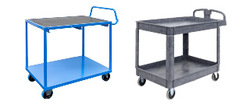
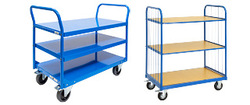
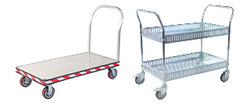
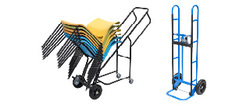
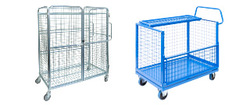
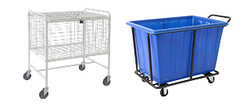
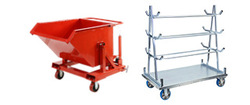
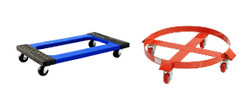
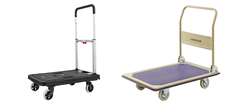
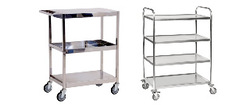
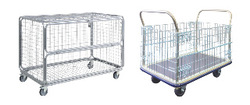
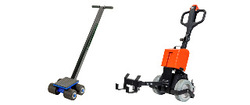
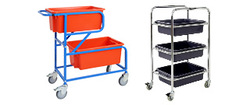
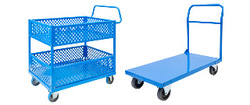
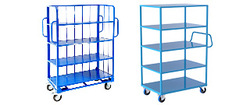
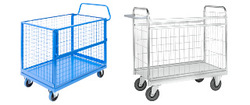
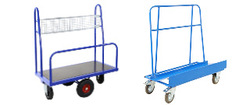
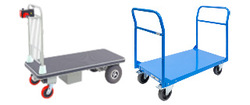
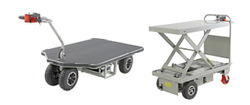
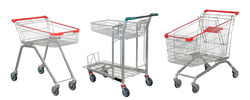
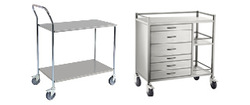
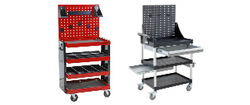
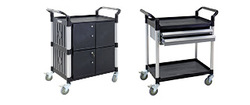
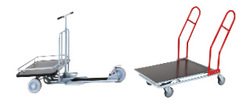
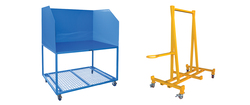



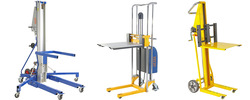



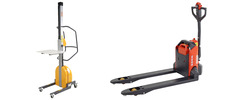
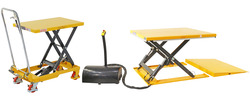
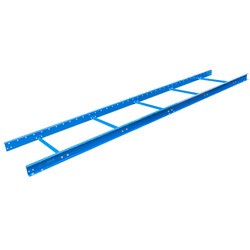
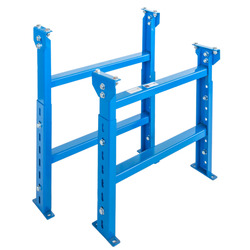
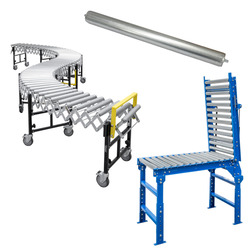
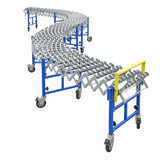


















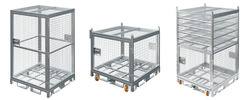

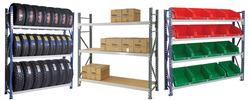
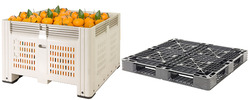
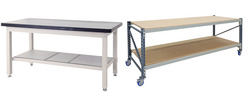
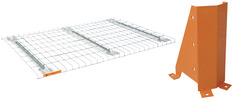
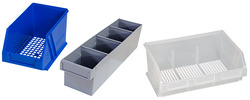

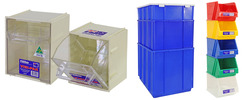

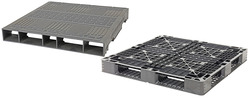

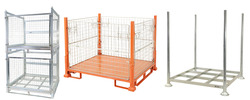
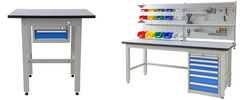
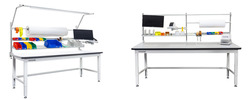


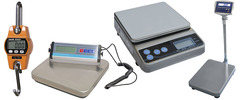



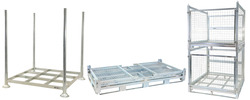
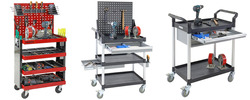
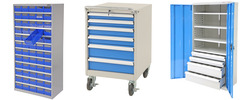

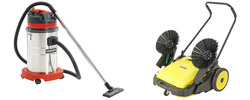











 Trolleys / Hand Trucks
Trolleys / Hand Trucks 2 Tier Trolleys
2 Tier Trolleys 3 Tier Trolleys
3 Tier Trolleys Aluminium Trolleys
Aluminium Trolleys Appliance & Hand Trucks
Appliance & Hand Trucks Cage Trolleys
Cage Trolleys Cleaning Carts & Trolleys
Cleaning Carts & Trolleys Construction Trolleys
Construction Trolleys Dollies
Dollies Foldable Trolleys
Foldable Trolleys Hospital Trolleys
Hospital Trolleys Laundry/Linen Trolleys
Laundry/Linen Trolleys Load Skates & Tow Tugs
Load Skates & Tow Tugs Mail / Office Trolleys
Mail / Office Trolleys Multi Purpose Trolleys
Multi Purpose Trolleys Multi-Tier Shelf Trolleys
Multi-Tier Shelf Trolleys Order Picking Trolleys
Order Picking Trolleys Panel Cart Trolleys
Panel Cart Trolleys Platform Trolleys
Platform Trolleys Powered Trolleys
Powered Trolleys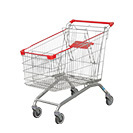 Shopping Trolleys
Shopping Trolleys Stainless Steel Trolleys
Stainless Steel Trolleys Tool Trolleys
Tool Trolleys Utility Carts
Utility Carts Warehouse Trolleys
Warehouse Trolleys Custom Trolleys
Custom Trolleys Lifting Equipment
Lifting Equipment Forklift Attachments
Forklift Attachments Jib Attachments
Jib Attachments Lifting Hoists & Pallet Hooks
Lifting Hoists & Pallet Hooks Manual Stackers & Lifters
Manual Stackers & Lifters Pallet Jacks
Pallet Jacks Pallet Lifters
Pallet Lifters Pallet Rotators & Dispenser
Pallet Rotators & Dispenser Powered Pallet Trucks & Electric Lifters
Powered Pallet Trucks & Electric Lifters Scissor Lift Trolleys and Tables
Scissor Lift Trolleys and Tables Conveyor Equipment
Conveyor Equipment Conveyor Frames
Conveyor Frames Conveyor Stands
Conveyor Stands Roller Conveyors
Roller Conveyors Skate Wheel Conveyors
Skate Wheel Conveyors Access Equipment
Access Equipment Container & Yard Ramps
Container & Yard Ramps Step Stools & Ladders
Step Stools & Ladders Work Platforms & Crane Cages
Work Platforms & Crane Cages Drum Handling
Drum Handling Drum Storage & Bunding
Drum Storage & Bunding Drum Trolleys & Lifters
Drum Trolleys & Lifters Forklift Drum Handling
Forklift Drum Handling Containment & Spillage
Containment & Spillage Aerosol Cans Storage Cages
Aerosol Cans Storage Cages Bunded Pallets & Storage
Bunded Pallets & Storage Corrosive Goods Storage Cabinets
Corrosive Goods Storage Cabinets Flammable Liquid Cabinets
Flammable Liquid Cabinets Forklift Gas Storage Cages
Forklift Gas Storage Cages Gas Cylinder Storage
Gas Cylinder Storage Site Storage
Site Storage Spill Kits
Spill Kits Stillage Cages
Stillage Cages Waste Handling
Waste Handling Bin Lifters & Tippers
Bin Lifters & Tippers Plastic Waste Bins and Carts
Plastic Waste Bins and Carts Steel Waste and Tipping Bins
Steel Waste and Tipping Bins Storage Equipment
Storage Equipment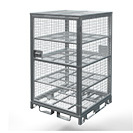 750 Series Cage Configurations
750 Series Cage Configurations Heavy Duty Cabinets & Benches
Heavy Duty Cabinets & Benches Heavy Duty Shelving
Heavy Duty Shelving Mega Bins & Pallets
Mega Bins & Pallets Packing Benches
Packing Benches Pallet Racking Accessories
Pallet Racking Accessories Parts Trays & Stor-Pak Bins
Parts Trays & Stor-Pak Bins Pegboard & Louvre Panels
Pegboard & Louvre Panels Plastic Bins
Plastic Bins Plastic Handling Solutions Bins
Plastic Handling Solutions Bins Plastic Pallets
Plastic Pallets Stack & Nest Bins
Stack & Nest Bins Storage Cages
Storage Cages Workplace Equipment
Workplace Equipment Workbenches
Workbenches Modular Workbenches
Modular Workbenches Electric Height-Adjustable Workbenches
Electric Height-Adjustable Workbenches Floor Matting
Floor Matting Industrial Weighing Scales
Industrial Weighing Scales Pallet Wrapping & Packaging Machinery
Pallet Wrapping & Packaging Machinery Ramps
Ramps Stationery Cupboards
Stationery Cupboards Storage and Stillage Cages
Storage and Stillage Cages Tool Trolleys
Tool Trolleys Tooling Cabinets
Tooling Cabinets Wheelie Bins
Wheelie Bins Workshop Equipment
Workshop Equipment Safety Equipment
Safety Equipment Gloves and PPE
Gloves and PPE Pallet Rack Post Protectors
Pallet Rack Post Protectors Safety Barriers & Bollards
Safety Barriers & Bollards Safety Knives & Cutters
Safety Knives & Cutters Signs and Traffic Supplies
Signs and Traffic Supplies Tool & First Aid Boxes
Tool & First Aid Boxes Construction Equipment
Construction Equipment Concrete Equipment
Concrete Equipment General Site Equipment
General Site Equipment Lifting Equipment
Lifting Equipment Site Storage
Site Storage Waste
Waste 










